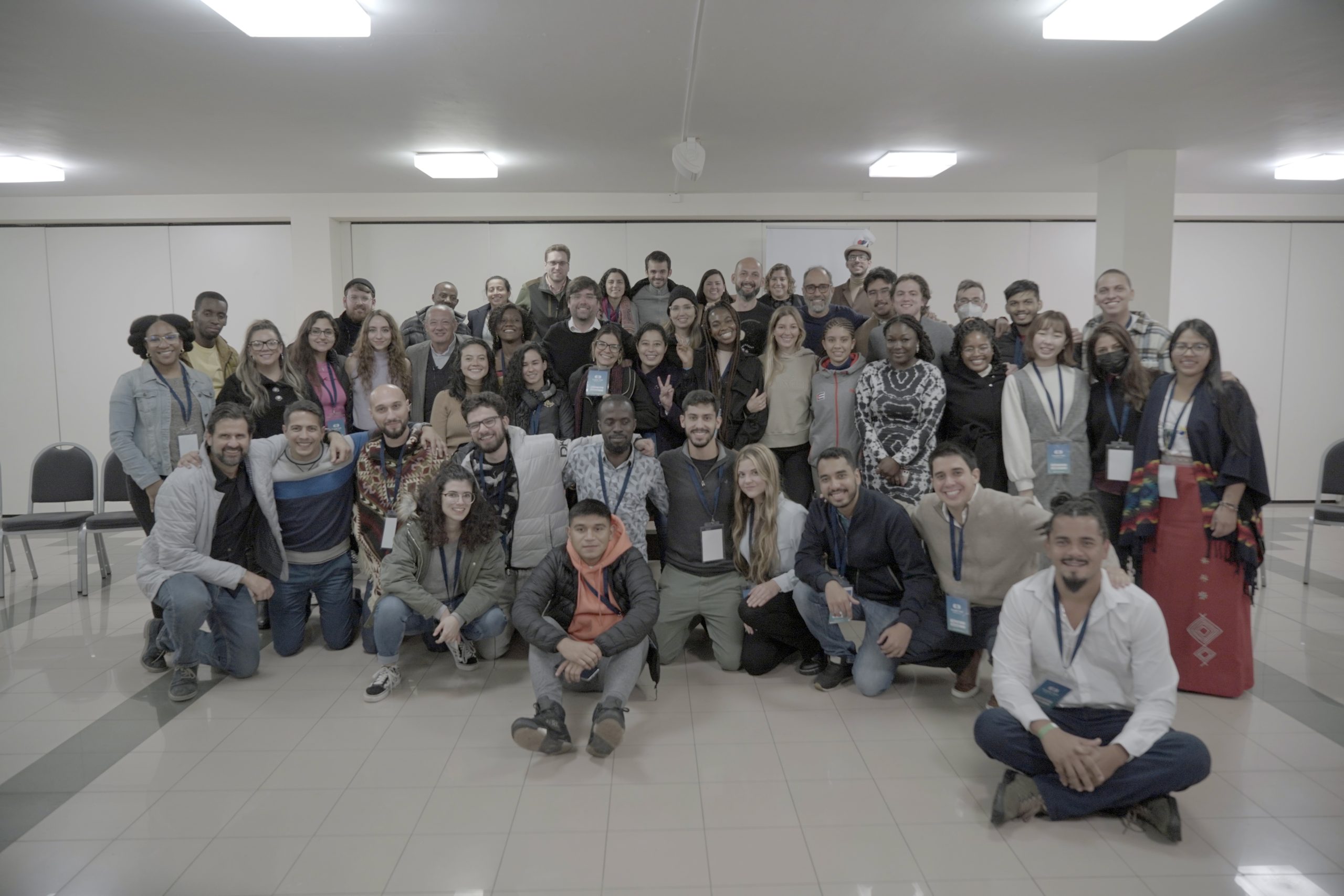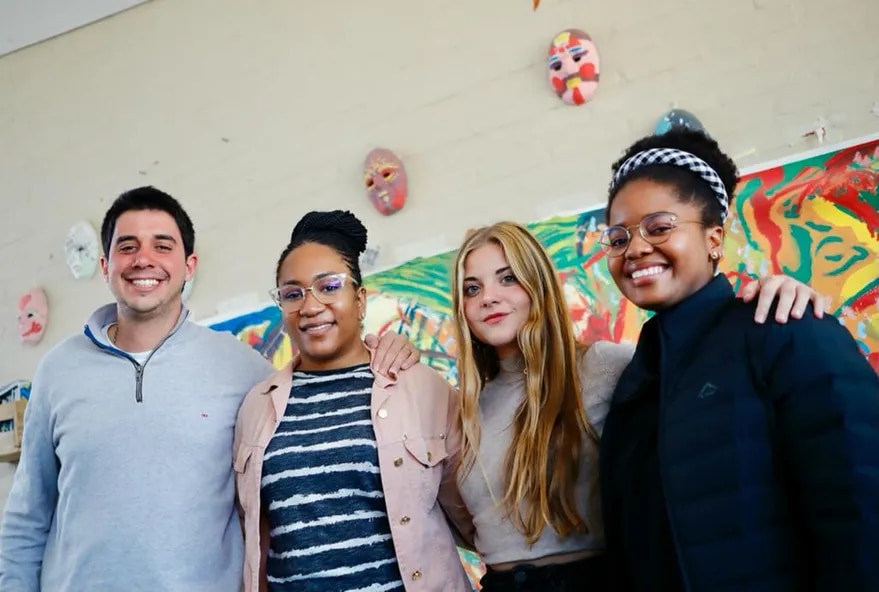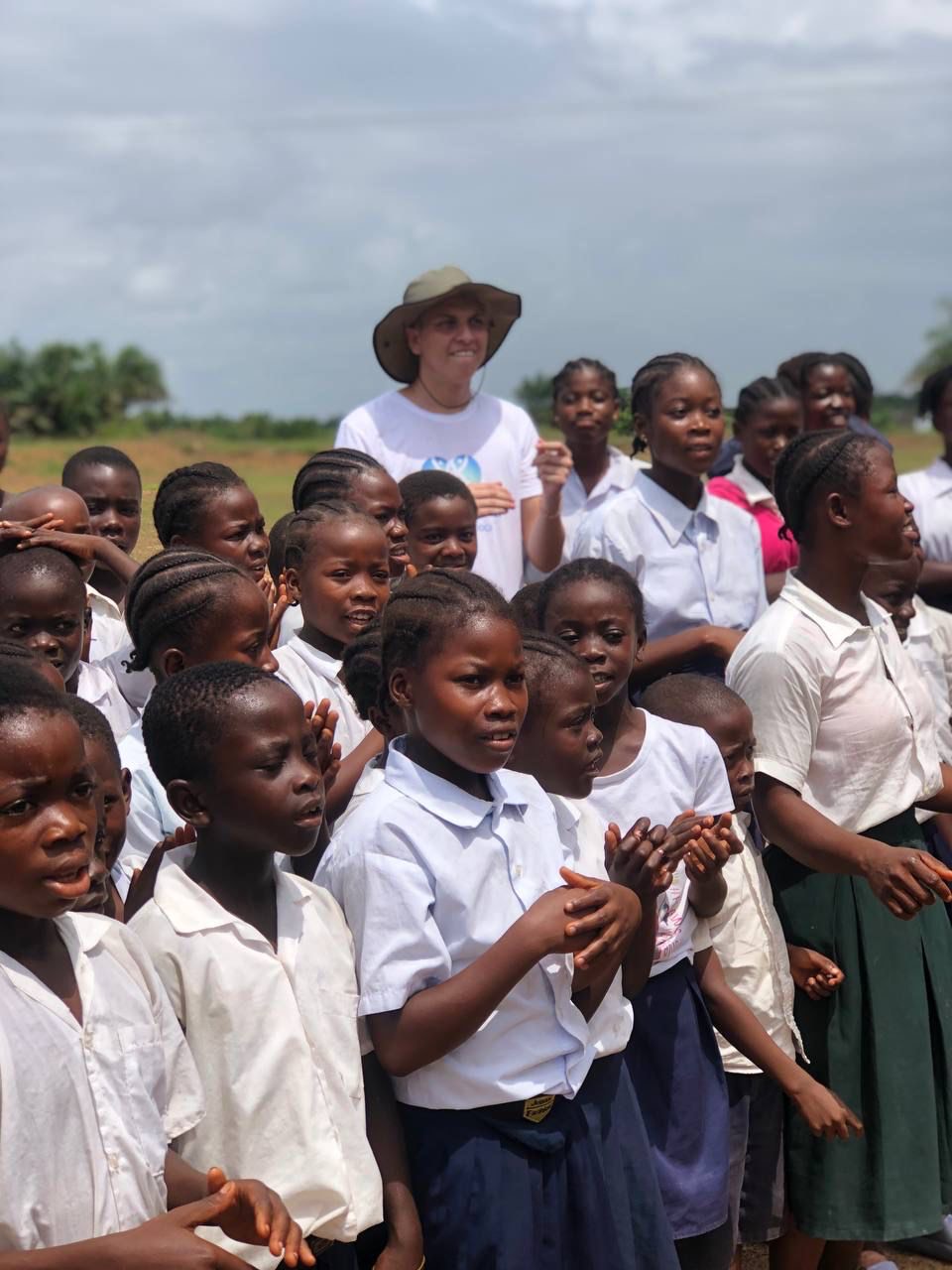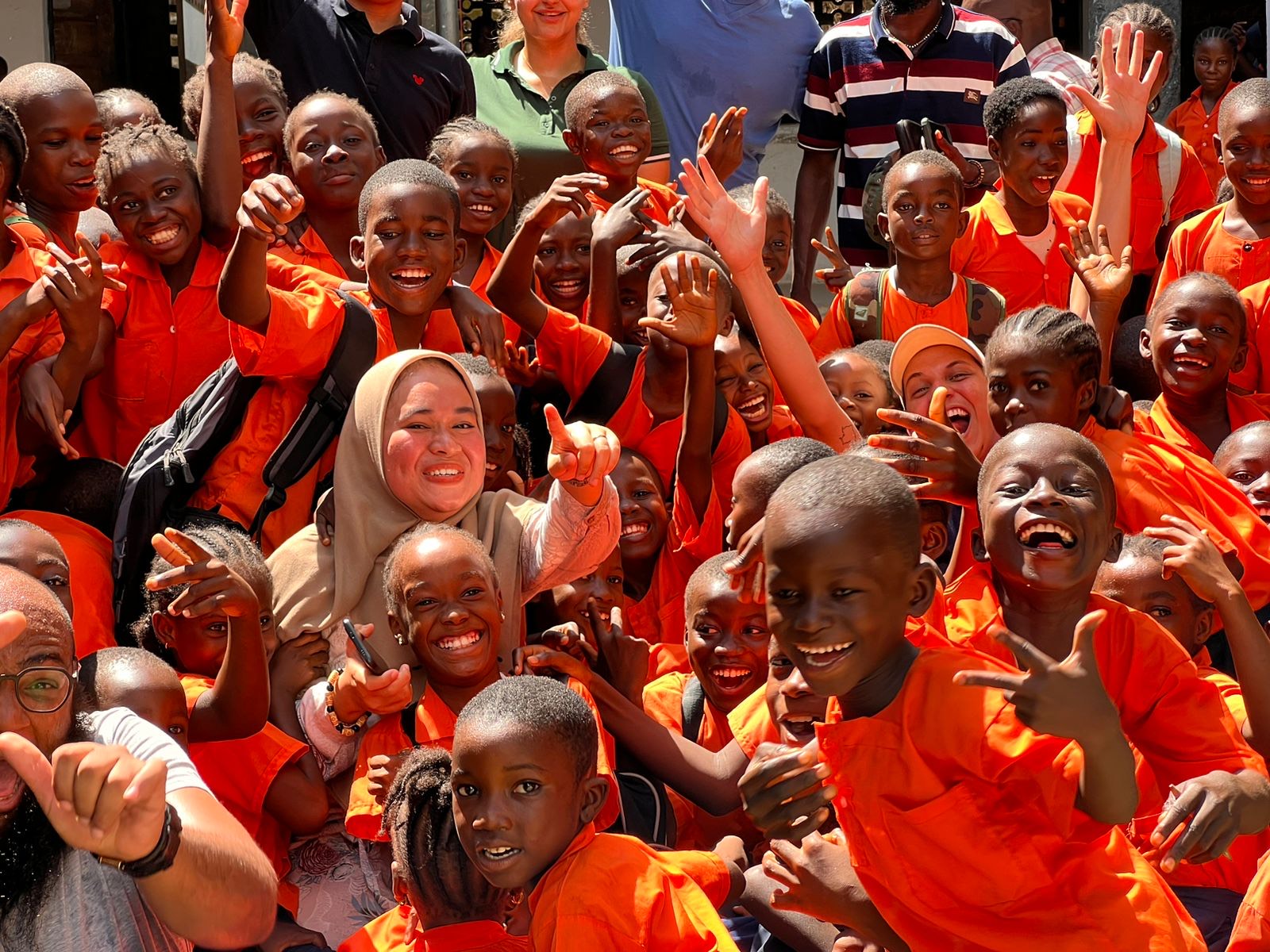When: November 15, 18, December 8, 16 2022
Where: Remote (Roma, Italy)
Institutions: Fratelli Tutti School of Politics
Facilitators: Sosthene Nahimana, Esihle Makitshi (South Africa); Shalini Malaki (Nigeria); Ingrid Dianey (Colombia); Rai Campos (Brasil); Vanina Lucchese, Juan Ignacio Maquieyra (Argentina).
Sessions: Four

“The mission of the Fratelli Tutti Leadership School of Politics is to forge a global community of young people from different regions and cultures, united in their vocation to transform the world and people’s lives through better politics at the service of the Common Good.”
“The mission of the Fratelli Tutti Leadership School is to forge a global community of young people from different regions and cultures, united in their vocation to transform the world and people’s lives through better politics at the service of the Common Good.”

Foto grupal, Roma, Experiencia Fundante de la Primera Cohorte
Juan Maquieyra Executive Director, and María José Mariano, Pedagogical Coordinator final reflection:
The experience of sharing and listening attentively to very different points of view, even with the initial desire to be equitable, requires its own process, since equity is built, not intuited in a universalist way.
 Equipo San Antonio de los Cobres
Equipo San Antonio de los Cobres
With the passing of each workshop, we developed fundamental practices such as horizontality, participation of all voices, importance in the use of time and words, reciprocity and creativity. We consider all of them to be of great value for the creation of teams and the development of a conscious citizenship.

Being a community integrated by a diversity of nationalities, cultural and religious traditions such as Fratelli Tutti’s, powerfully enriched everything that the prototype invited to realize. In this sense, the proposal enhances the teams’ own reality, generating a powerful balance between embracing a diversity of perspectives and deepening the themes proposed by the texts.
Also, the methodology can be adapted to the reality of the community, considering the best scenarios to enrich the process. To this end, the sessions were organized in two rooms by language -Spanish and English-.
Finally, it was a novelty to discover and enjoy literary resources as a source of inspiration in this shared path. The texts that took part were the following:
Essential Care, Leonardo Boff.
The ignorant teacher, Jacques Rancière.
The Perfume of the Teacher, unknown author.
How to Write about Africa, Binyavanga Wainaina.
The commitment to democratization, Juan Carlos Monedero.
The Education of a British-Protected Child, Chinua Achebe.
Orthodoxy, G.K Chesterton.

“We are deeply grateful for this time of learning, playing and sharing. It has been a meaningful adventure for our community and we are eager to continue developing this methodology to further discover new meanings.”
